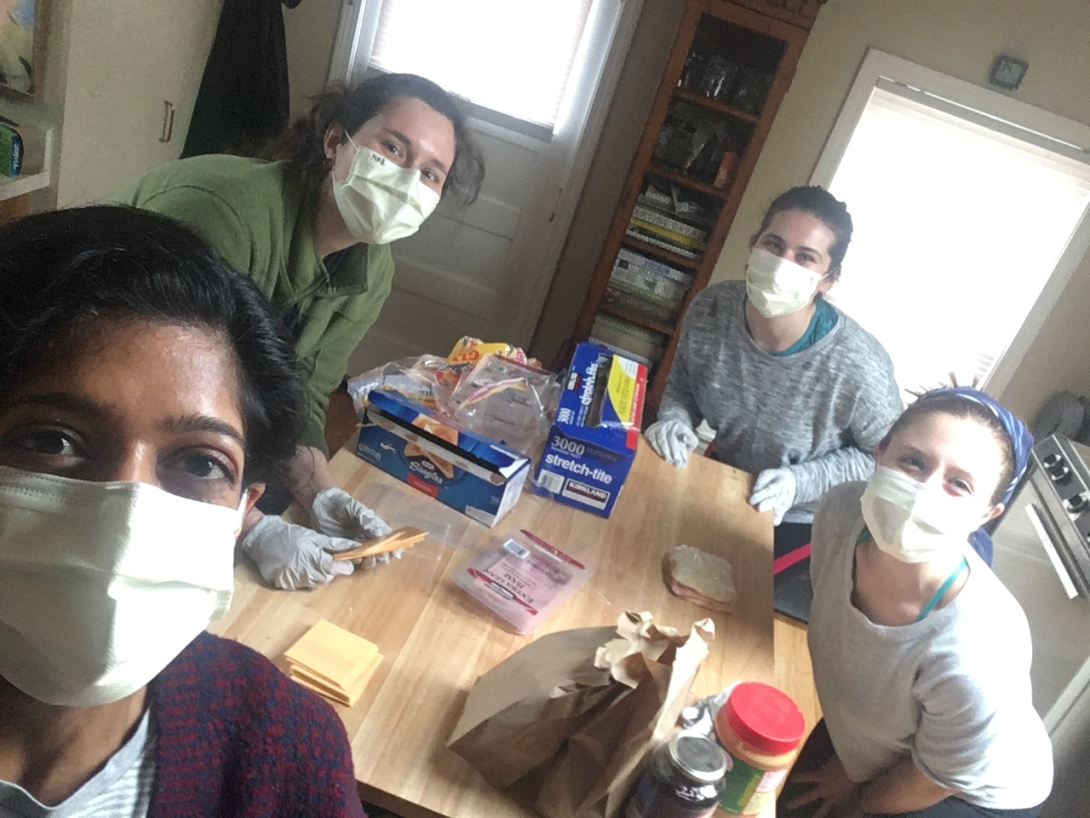There was a certain foreboding quietness in the wards during the weeks before the onslaught of COVID-19. With classes canceled for pre-clinical medical students and most elective surgeries or non-urgent clinic visits rescheduled, the hospital, which often functions at full-capacity, seemed empty. Besides more masked faces roaming the corridors and checkpoints at all the hospital entrances with guards asking, "Do you have symptoms of cough, cold, or flu?"—not much looked differently from days before COVID-19 made its way to our state. However, the entirety of Michigan Medicine felt very different.
As a clinical medical student, my classmates and I have felt a certain tension between our role as learners and wanting to be on the front lines during this time of crisis. We want to be in the hospital, yet we also do not want to get in the way. Is our presence within the hospital space as learners an asset to reduce burden on nurses and physicians as they provide care to COVID-19 patients, or are we using up valuable PPE and being agents of viral spread? On March 17, the Association of American Medical Colleges and Liaison Committee on Medical Education decided the latter, issuing a statement recommending that medical schools pause all clinical rotations until at least the end of the month. Within minutes of this announcement, a dismissal email from the deans was in our inboxes.
In being removed from the clinical setting, I felt denied the great privilege that the health care profession bestows: to serve others in moments of crisis. I personally believe that medical students can be useful; we just need the appropriate training and direction. We can do 'scut work,' like calling consults, writing notes, or admitting non-COVID19 patients, freeing up more time for residents and physicians tending to the unfolding crisis. While I agree we are not yet equipped to be essential personnel at the front lines, I believe that the opportunity to volunteer in some capacity in the clinical space should be open to us. We, too, have an ethical responsibility to patients. We took a pledge at our white coat ceremony saying so.
The outbreak has underlined the health care system's lack of preparedness on many fronts—particularly in providing appropriate resources to vulnerable patient populations and health care providers who are still expected to go to work. While schools and daycares are sending kids home, parent doctors and residents are scrambling to find childcare. Additionally, there have been little to no guidelines regarding how to best protect certain patient populations, such as people experiencing homelessness, who have nowhere to safely practice social distancing. These challenges are just in addition to concerns surrounding availability of PPE, ventilators, and our blood supply.

e are called back to work.
Addendum: Since writing this, select medical students have been allowed back into the clinical space on a volunteer basis to work as respiratory therapy extenders and discharge support on internal medicine services.
University of Michigan Medical School
Want top health & research news weekly? Sign up for Health Lab’s newsletters today!





